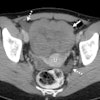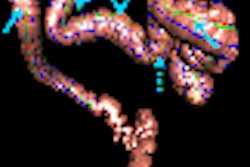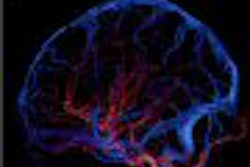Dear CT Insider,
The emergency department, where imaging must be fast as well as accurate, is a fine place to try new CT contrast protocols that could speed the delivery of care. Research from two groups of trauma radiologists we're featuring today examined new ways of delivering contrast to patients with abdominal pain.
First, a group from Boston compared CT's ability to diagnose two groups of patients with suspected appendicitis, diverticulitis, or small bowel obstruction. One group was scanned after oral and IV contrast administration -- and the other with IV contrast alone.
Next, a team from Dallas compared CT results in two groups of adult emergency department patients referred for abdominal/pelvic CT: One group received barium and the other iohexol, a nonionic iodinated oral contrast agent. How well did CT perform without barium? Find out in this issue's Insider Exclusive story.
In other abdominal news, researchers from Chieti, Italy, found that 3-mm slices are superior -- even to thinner ones -- when checking for endoleaks in repaired abdominal aortic aneurysms.
On the software side, staff writer Erik L. Ridley looks at lossy compression of CT images, a potential path to bandwidth and storage savings that even today few dare to tread. In a pair of studies presented at the 2007 RSNA meeting, researchers from Vienna and Seoul tested the limits of compression and found little degradation of image quality.
If you're looking to improve patient throughput without buying a new scanner, look into hiring more technologists, reports staff writer Kate Madden Yee on a study from Massachusetts General Hospital and Harvard Medical School in Boston.
A story by staff writer Shalmali Pal nudges radiation oncologists to ensure that unexpected CT simulation findings are reported -- lest a new tumor escape follow-up. And emphysema seen on CT, a new study reports, is an independent risk factor for lung cancer.
In news from the heart, coronary CT angiography (CTA) is in big trouble, and it couldn't happen to a better exam. The U.S. Centers for Medicare and Medicaid Services (CMS) has roiled the imaging community by proposing severe reimbursement restrictions on coronary CTA. If the plan passes, Medicare payments for the scans will be limited to two indications within the confines of clinical trials.
In response, imaging providers have flooded the CMS Web site with comments opposing the ban. But their nearly unanimous medical consensus might not be enough to bury the plan if CMS is intent on making coronary CTA a test case for broader cuts in imaging reimbursement. To turn the tide, CTA advocates are urging providers to contact their representatives in Congress this week.
Meanwhile, stay tuned to your CT Digital Community for news that impacts you, your patients, and your scanner.




















